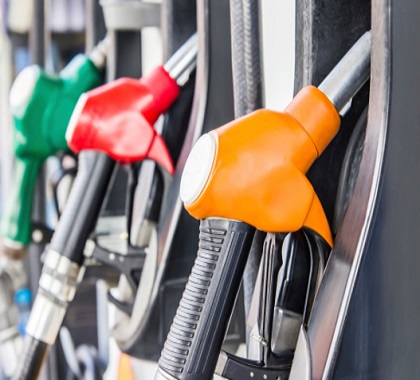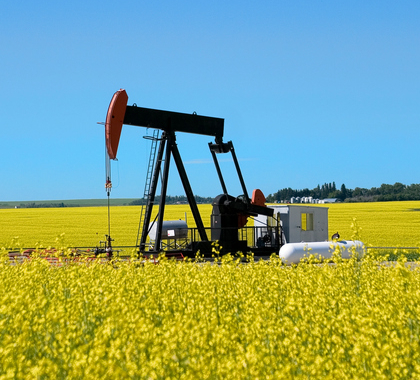Leaders in Indiana’s House of Representatives recently introduced a transportation funding plan that would increase the state’s gasoline tax by 10 cents per gallon, resulting in a tax increase of $48 per year for the average Indiana driver. The new funding plan would implement several additional fee and tax hikes. It would also require the Indiana Department of Transportation to study tolling and submit a waiver to the federal government to allow tolling on interstates in Indiana.
In recent years, the rise of fuel-efficient cars has decreased motor-fuel tax coffers and disproportionately shifted the burden to low-income drivers, a group that typically owns older, less-fuel-efficient vehicles. The House proposal attempts to address this growing problem by charging a fee of $150 per year for electric vehicles as a way to compensate for using less gasoline. The gas tax increase is also problematic because it is designed to increase over time with inflation, a mechanism known as indexing.
In addition to increasing gas taxes, the proposal would create several new tax and fees for Indiana drivers, including a $15-per-year infrastructure improvement fee that would be applied to every vehicle registered in the state, a 10-cents-per-gallon increase in the special-fuel and motor-carrier surcharge taxes, and it would allow cities to implement local vehicle registration fees. The tax increase package is estimated to bring in $1.2 billion per year to maintain state and local roads and fund expansion. The burden on taxpayers would be heavy.
The fact gas taxes in the state have not increased in recent years does not mean they need to be increased now, and layering county and local wheel fees on top of state fees creates an unnecessary burden on Hoosier drivers – especially on the state’s poorest people. A tax hike would raise prices on goods and services purchased throughout the economy, not just on gasoline, because virtually all consumer goods are transported using gasoline-powered vehicles. Businesses will simply pass the added costs on to consumers.
Gas taxes are a regressive tax hike that Wendell Cox and Ronald Utt argue has a stronger effect on lower- and middle-income families than it does on the wealthy. The tax could also cause low-income families to drive less, which could reduce employment options. Americans for Prosperity estimates lower gas prices amount to approximately $100 in additional spendable income per month for an average family, which means the recent nationwide drop in gas prices could potentially lead to an additional $100 billion of economic growth.
The main problem with transportation funding lies not with revenue but with spending. Far too many dollars are spent on projects unrelated to roads, such as bike paths and museums. If gas taxes are intended as a user fee, gas tax dollars should be spent on roads alone. In The Wealth of Nations, Adam Smith argues when infrastructure is constructed and maintained using user fees and decentralized, new construction occurs only when market demand justifies it.
Miriam Roff of Americans for Tax Reform argues the new proposal does not do enough to prevent misuse of gas tax dollars, as gas tax revenue will continue to be diverted to the state’s general fund until 2019. Roff argues if transportation funding were truly the priority legislators say it is, lawmakers would “immediately use gas tax revenue for its intended purpose: roads. Legislators would also permanently codify the earmarking of gas tax revenue to new and existing transportation projects.” Americans for Prosperity found Indiana would have the fifth-highest gas tax in the country if the proposal passes.
Indiana legislators need to explore more modern and efficient ways to fund road construction and traffic infrastructure, such as privatizing roads and establishing toll systems. In several cities, transportation agencies are using congestion pricing—varying toll prices based on congestion—to manage demand and limit traffic problems.
The following documents provide additional information about how motor-fuel taxes are applied and the impact they have on states’ economies.
Indiana Republican House Speaker Bosma Pushing for Gas Tax Hike Again
https://www.atr.org/indiana-republican-house-speaker-bosma-pushing-gas-tax-hike-again
Miriam Roff of Americans for Tax Reform examines a new series of gasoline tax hikes proposed by Indiana legislators to raise about $800 million in new funds for the state’s transportation infrastructure over the next two years.
Alternatives to the Motor Fuel Tax
https://heartland.org/publications-resources/publications/alternatives-to-the-motor-fuel-tax?source=policybot
This report, prepared by the Center for Urban Studies at Portland State University and submitted to the Oregon Department of Transportation, evaluates potential alternatives to motor-fuel taxes. The report also identifies the economic and technological problems that must be addressed when designing alternative revenue sources.
Designing Alternatives to State Motor Fuel Taxes
https://heartland.org/publications-resources/publications/designing-alternatives-to-state–motor-fuel-taxes?source=policybot
Writing in Transportation Quarterly, Anthony M. Rufolo and Robert L. Bertini consider the future of motor-fuel taxes as more fuel-efficient vehicles become available. They also report on the economic effects of road pricing as a substitute for fuel taxes.
Paying at the Pump: Gasoline Taxes in America
http://taxfoundation.org/article/paying-pump-gasoline-taxes-america
Jonathan Williams argues gas taxes can be an effective means of funding transportation improvements. In many cases, however, governments exploit the taxes for political reasons, spending them on projects unrelated to roads and other transportation improvements.
State Motor Fuel Taxes: January 2017
http://www.api.org/oil-and-natural-gas/consumer-information/motor-fuel-taxes
The American Petroleum Institute documents each state’s current motor-fuel taxes (both gasoline and diesel).
Reconsider the Gas Tax: Paying for What You Get
https://heartland.org/publications-resources/publications/reconsider-the-gas-tax-paying-for-what-you-get?source=policybot
Jeffrey Brown of the University of California–Los Angeles notes the gasoline tax was created as a user fee to raise money for roads, but many politicians and the general public seem to have lost sight of this purpose and lump it together with other unpopular taxes. The challenge for policymakers, Brown argues, is to restore the connection in the public’s mind between the tax and the roads it should provide.
Research & Commentary: Congestion Traffic Pricing
https://heartland.org/publications-resources/publications/research–commentary-congestion-traffic-pricing?source=policybot
Congestion pricing, an alternative to gasoline taxes, uses market principles to address traffic congestion. Under congestion pricing, operators of a road charge a variable price based on congestion, allowing the operator to manage demand and limit congestion. Heartland Senior Policy Analyst Matthew Glans examines several proposals for implementing pricing systems to alleviate traffic congestion.
Fuel Taxes, Tolls Pay for Only One-Third of Road Spending
https://heartland.org/news-opinion/news/fuel-taxes-tolls-pay-for-only-one-third-of-road-spending?source=policybot
Joseph Henchman of the Tax Foundation finds highway user taxes and fees made up just 32 percent of state and local spending on roads. Financing for the rest of the projects came out of general revenues, including federal aid.
Raising Gas Taxes Won’t Fix Our Bridges
https://heartland.org/publications-resources/publications/raising-gas-taxes–wont-fix-our-bridges?source=policybot
In the aftermath of the I-35 bridge collapse in Minneapolis, Minnesota, Adrian Moore of the Reason Foundation argues increasing fuel taxes should not be the only response to state transportation funding problems. Moore wrote, “First we must examine how we spend transportation dollars now. Then we maximize the value out of those dollars. Finally, the last step is to address the need for additional revenue.”
Nothing in this Research & Commentary is intended to influence the passage of legislation, and it does not necessarily represent the views of The Heartland Institute. For further information on this and other topics, visit the Budget & Tax News website, The Heartland Institute’s website, and PolicyBot, Heartland’s free online research database.
The Heartland Institute can send an expert to your state to testify or brief your caucus, host an event in your state, or send you further information on a topic. Please don’t hesitate to contact us if we can be of assistance! If you have any questions or comments, contact Nathan Makla, Heartland’s government relations manager, at [email protected] or 312/377-4000.




